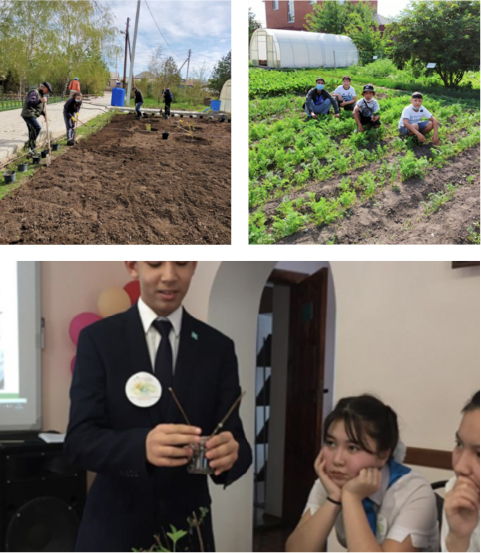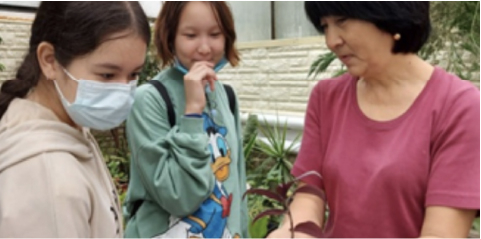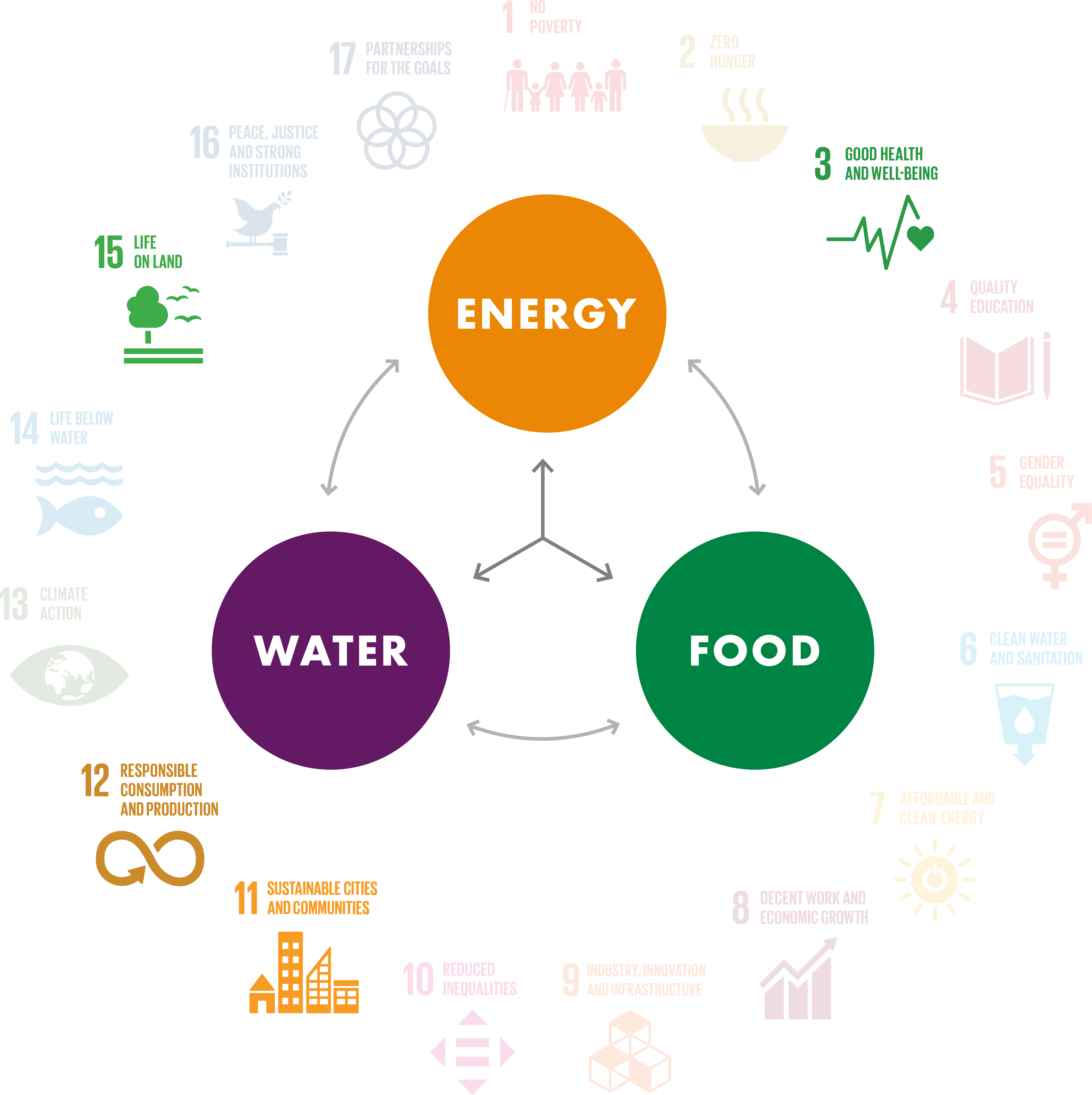Team Ushqyn, a group of Shell NXplorers students from West Kazakhstan, wanted to improve the environment surrounding their local eco-bio centre by creating an arboretum full of rare ornamental and flowering plants not usually found in their region. To preserve natural resources, they installed a drip irrigation system, working towards the UN’s Sustainable Development Goals (SDGs) of good health and wellbeing, sustainable cities and communities, responsible consumption and production and life on land.
These young environmental activists took part in NXplorers to raise funds for their project, using tools like the Persuasion Pyramid and action planning. They collaborated with the eco-bio centre manager, who allocated a plot of land and helped them select the plants for their eco-trail.
The project’s aim was to create a living laboratory for students and teachers, as well as a relaxing, green open space for visitors. It should also help to spread the word among the community about preserving ecosystems, using land and natural resources more sustainably, and increasing the diversity of species of tree flora, which have reduced as the area’s ecology has deteriorated.
Research sustainable water use
Using the NXplorers toolkit, the team researched the best methods of growing the plants and how to get water to them in the most efficient way. A consultation with specialists led them to drip irrigation – a type of micro-irrigation that saves water by feeding it slowly through a pipe system directly to the plant’s roots.
The students purchased an 800-litre tank and 200m of polypropylene pipes, then got to work learning how to install them around the planting site. Drip irrigation is used frequently in areas with a dry climate and low rainfall, and has reduced water consumption within the arboretum by 20%.
Recultivate skills to improve the land
The group’s founder, Abdiakhat Tim, and his friends Alexandra, Anel and Ayazhan, are young naturalists already well-versed in different methods of cultivation and landscaping, thanks to the hard work of the team that run the eco-bio centre. Team Ushqyn’s objectives were to improve the cultivation of plants, master agrotechnical methods of growing ornamental trees and bushes, and conduct experiments and observations that they could share with other children.
By choosing land for the arboretum that was previously used to grow vegetables, soil health has been improved and new habitats created for local wildlife.

Remaster ways of working together
NXplorers helped the students to develop critical and creative thinking in order to solve issues as a team. With the support of the eco-bio centre manager, they held regular meetings and progress reviews to keep tabs on how they were doing. In the greenhouse, they started to grow shrubs and trees that would eventually become part of the eco-trail, planting a ‘Lilliput’ lawn and creating decorative garden paths.
The students absorbed as much knowledge as they could from their teachers and then put their learning into practice, with each member of the team playing to their individual strengths. Eventually, they hope to be able to pass their knowledge on to their friends and families, as well as the next group of trailblazing young eco warriors.
Conclusion
Team Ushqyn worked cohesively to achieve amazing results and felt a new surge of energy following the completion of the project, which will help them to come up with more ideas in the future. As the plants and trees continue to flourish, the hope is that this educational centre on the banks of the river Chagan in the city of Oral will grow into a large, beautiful space for students, visitors and the whole of the local community. What started as a seed of an idea can bloom into something that benefits everyone.

Through unwavering determination, we overcame every hurdle along the way and achieved what seemed impossible. Our participation in this monumental project filled us with gratitude as we left our mark on its journey.
How This Project Contributes To The UN SDGs
3. Good health and wellbeing
Future visitors to the centre will benefit from green open spaces, a relaxing recreation area and open-air nature lab.
11. Sustainable cities and communities
The centre teaches young people how to cultivate plants and trees, learn about their environment and ensure it is preserved for future generations.
12. Responsible consumption and production
Drip irrigation uses water more responsibly and sustainably and the re-use of land improves soil health and adds nutrients.
15. Life on land
The arboretum eco-trail will create and preserve ecosystems, restore degraded land and soil and improve natural habitats for wildlife.

Diagram of the United Nations’ Sustainable Development Goals numbered in a large circle, each with a smaller diagram below to represent the specific Development Goal. All of the Development Goals are faded, apart from four of them:
3. Good health and wellbeing
11. Sustainable cities and communities
12. Responsible consumption and production
15. Life on land
Within the circle there are three circles in a triangle formation reading ‘Energy’, ‘Water’ and ‘Food’, with arrows to show how they are all interconnected.